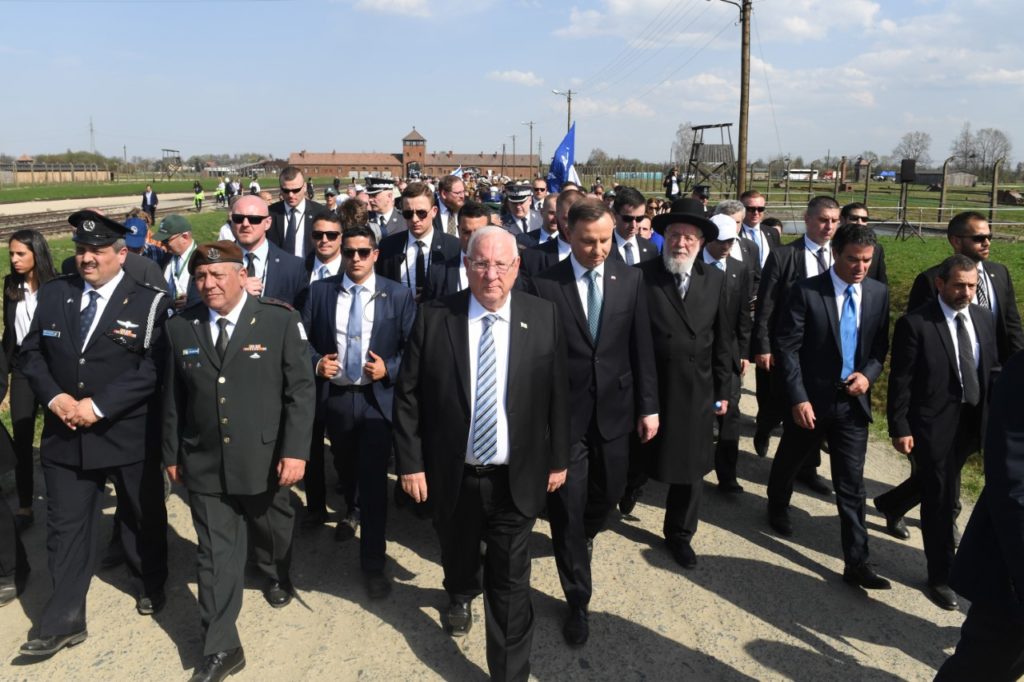The controversial anti-defamation law on criminalising an open debate on the Holocaust in Poland was cancelled last week by an overwhelming majority in the Polish parliament (Sejm) and immediately signed off by President Andrzej Duda. The law had sparked widespread criticism and soured relations between Israel and Poland but was not included in the still on-going dialogue with the EU on the rule of law in Poland and the independence of its courts.
It was passed in January as an amendment to the Act on the Institute of National Remembrance and criminalised claims of Polish complicity in Nazi-Germany's crimes on Polish soil. When it was passed, the President referred it to the Constitutional Tribune for judicial review, a process that had not been finalised when the amendment was cancelled.
When addressing the Parliament on Wednesday (27 June), Prime Minister Mateusz Morawiecki said the law had been a necessary shock for the world to avoid such untrue expressions as "Polish death camps" but that the criminalising provisions had started to act in a counter-productive way.
Israeli President Reuven Rivlin spoke with President Andrzej Duda on Thursday and thanked him personally for the cancellation of the law. They had met in April during the March of Living to Auschwitz where they had a frank discussion without succeeding in solving the issue.
While the cancellation of the law was welcomed in Israel, not all were satisfied with the joint statement of Israel and Poland (see below). Well-known Holocaust historian Yehuda Bauer accused the Israeli government of “betrayal” and for accepting a Polish “narrative”.
| Joint Statement of Israel and Poland In a joint statement on 27 June issued by the prime ministers of the two countries, Israel and Poland seem to have found common ground in addressing their tragic history during World War II. “It’s obvious that the Holocaust was an unprecedented crime, committed by Nazi Germany against the Jewish nation, including all Poles of Jewish origin,” says the statement. “We have always agreed that the term ‘Polish concentration/death camps’ is blatantly erroneous and diminishes the responsibility of Germany for establishing those camps. The wartime Polish government-in-exile attempted to stop this Nazi activity by trying to raise awareness among the Western allies of the systematic murder of the Polish Jews.” While acknowledging and condemning “every single case of cruelty against Jews perpetrated by Poles during World War II”, the two countries are “honoured to remember heroic acts of numerous Poles, especially the Righteous Among the Nations, who risked their lives to save Jewish people.” “We reject the actions aimed at blaming Poland or the Polish nation as a whole for the atrocities committed by the Nazis and their collaborators of different nations. Unfortunately, the sad fact is that some people – regardless of their origin, religion or worldview – revealed their darkest side at that time.” A paragraph in the statement refers to the Polish “secrete state” during the war. This state was described already during the war in a book by Polish officer and diplomat Jan Karski who had risked his life to warn the allied powers about the mass extermination of the Jews. “We acknowledge the fact that structures of the Polish underground state supervised by the Polish government-in-exile created a mechanism of systematic help and support to Jewish people, and its courts sentenced Poles for collaborating with the German occupation authorities, including for denouncing Jews.” Israel and Poland “support free and open historical expression and research on all aspects of the Holocaust so that it can be conducted without any fear of legal obstacles”. No-one will “be subjected to any legal charges for exercising the right to free speech and academic freedom with reference to the Holocaust." |
M. Apelblat
The Brussels Times

